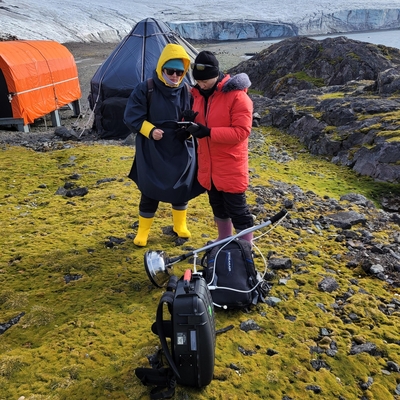
Svetlana Evgrafova
Organization: Sukachev Institute of Forest Siberian Branch of the Russian Academy of Science, Federal Research Center “Krasnoyarsk Science Center SB RAS”
Years Using Picarro: 10 Years
Analyzer(s) Used: G2201-i, G4301
Assessing the Impacts of Climate Change on Permafrost Ecosystems by Studying CO2 and CH4 Fluxes
About My Research
When using Picarro G2201-i, the methodology for assessing methanotrophic processes by moss and lichen associates changed in practice. In particular, it became possible to identify new methanotrophic bacterial species associated with mosses and lichens using the isotopic signature δ13С in methane.
It became possible to evaluate the methanogenesis pathways in the anaerobic incubation of soils and bottom sediments, which helps to determine (estimate) the composition of methanogenic communities without applying molecular techniques. With the use of Picarro G4301, it’s possible to estimate the current emission of CO2 and CH4 over large areas with high accuracy and an increasing number of replications, which increased the environmental significance of the studies.
How Picarro Analyzers Helped
My work is related to microbial ecology in cold environments. The use of Picarro G2201-i helped to assess the pathways of methanogenesis in the sediments of the Yenisei River, bottom sediments of Arctic and Antarctic lakes, and the methanotrophic ability of moss and lichen associates in permafrost and non-permafrost ecosystems. The portable Picarro G4301 has changed the sampling approach and assessment of the ecosystems in the current state, including the logistically hard-to-reach Antarctic region, especially with the scope of methane emission/consumption by polar soils. All this helps me to study the state of ecosystems in terms of CO2 and CH4 fluxes, as well as the behavior of soils and ground covers microbiota in assessing the impacts of climate change on permafrost ecosystems.
